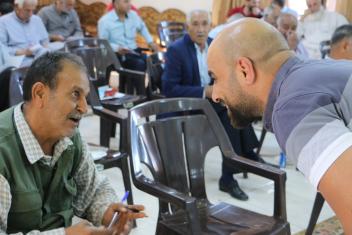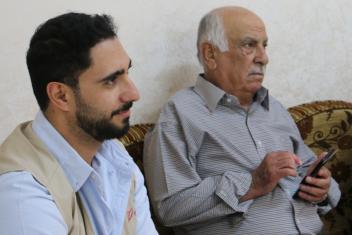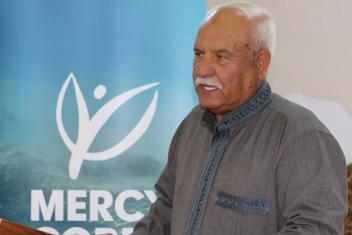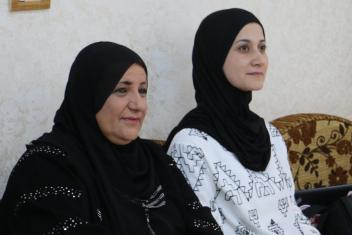How Mercy Corps is helping Jordan with its water crisis
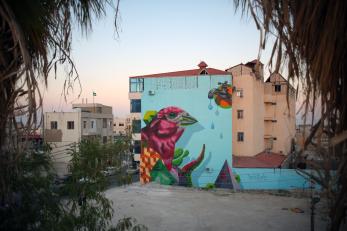
Jordan is one of the most water-scarce countries in the world and has one of the lowest per capita water availability levels in the world. With the country's population nearly doubling from 2004 to 2015, partly due to the large influx of Syrian refugees into Jordan, the ever-increasing demand for water supply and water care has become more important. In addition, aquifers in Jordan - the main source of water - are being drained faster than can be refilled, and this situation is exacerbating as the effects of climate change rise. As a result, when water demand outpaces water availability, it will cause increased tension and disruption.
As part of its overall strategy, Mercy Corps Jordan focuses on water conservation efforts as well as reducing the negative impact of water scarcity on economic development and the most vulnerable people in society. In addition, prior to the 2018 flash floods that led to the loss of lives of 21 people in the Dead Sea, Mercy Corps Jordan has drawn its attention toward addressing the long-term and serious challenges that climate change poses, and started working on supporting communities becoming climate change resilient through adaptive and environmentally sustainable interventions.
Water Innovation Technologies project
Over the past five years, Mercy Corps, through the USAID-funded Water Innovation Technologies (WIT) project, has partnered with different stakeholders including researches and local business along with the Government of Jordan, and local NGOs, to increase water conservation in Jordan by focusing on water efficiency in the agricultural sector and at the community and household levels.
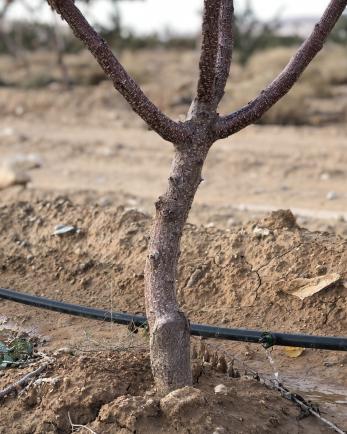
What seemed like an impossible target at the onset of the project, was reached thanks to focusing on the right market actors. WIT-led interventions from March 2017 to March 2022, saved an estimated 27.854 million cubic meters of water (a volume equivalent to over 11,000 Olympic swimming pools), surpassing its initial target of 18.5 million cubic meters.
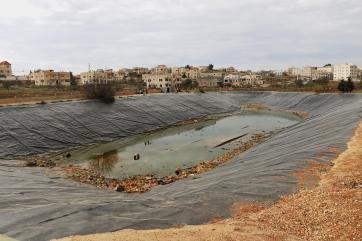
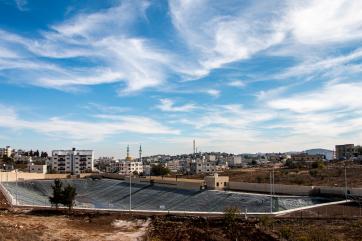
The project has also focused on the promotion of water conservation through water-saving practices and water innovation technologies, including the utilization of rainwater retention structures, greywater treatment systems, efficient irrigation technologies and systems, and water-saving devices in addition to strong behavior change messaging including community initiatives murals, distribution of brochures and flyers, short service messages and posters through various media platforms that have collectively reached 2,407,042 people.
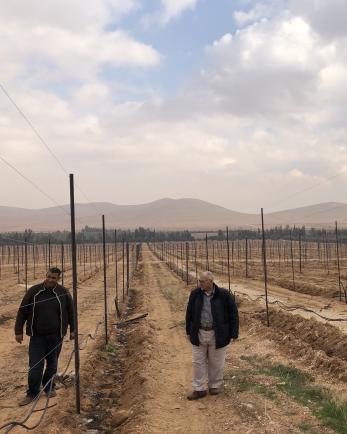
Building Communities Flood Resilience project
On another level, The risk of flash flooding is high in Jordan with intensity and frequency expected to increase due to climate change. Floods accounted for nearly 40 percent of hazards in the country between 1980-2020. Intermittent, high intensity rain falls on arid and dry hills carry sediment and water into the cities. Recent flash floods have disrupted social cohesion and led to further strain in the relationship between communities and the Government of Jordan, which is facing a drop in public confidence.
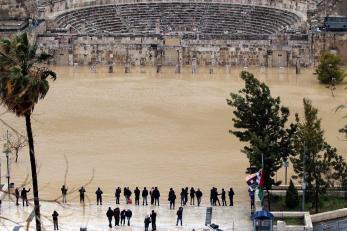
Mercy Corps Jordan through its Building Communities Flood Resilience’s project is currently working with four flood-prone communities (in urban and rural areas) to measure their resilience, develop interventions with the communities to address flood risks, advocate with the government to address these gaps, and take learnings from resilience measurements and interventions to share with the government and global level policy conversations focused on climate change and disaster risk reduction.
The interventions will not only strengthen physical infrastructure, but also build social and human capital through activities such as participatory development of community evacuation plans. The project starts to facilitate the development and training of community advocacy committees – the committees will identify flood resilience support needs and advocate to local government stakeholders on improved policies and investment. This participatory approach will equip communities with networks, platforms, and skills so they can actively engage with and influence local policies beyond the project period.
Livelihoods and Environmental Actions for Development project
Mercy Corps Jordan's efforts to expand its portfolio of Economic Development and Climate Change continue. The Livelihoods and Environmental Actions for Development (LEAD) project was officially launched earlier June 2022, with the goal of improving water infrastructure, water and agriculture practices, and facilitating increased access to more profitable and reliable markets for targeted smallholder farmers, food producers, women, and youth in the targeted area.
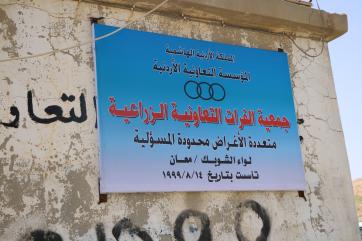
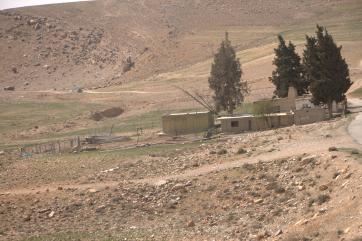
The LEAD project is funded by the Australian Government's Department of Foreign Affairs and Trade (DFAT) and will be implemented in Zubarieya village in the greater Shobak area of Ma'an, Jordan. Using a Community-Based Natural Resource Management (CBNRM) approach since 1999, Zubarieya Village has established Al Furat Community Based Organization (CBO) to help manage their water resources. Zubarieya residents rely on Al Furat to operate the water system, collect communal dues, and maintain the infrastructure.
Mercy Corps will collaborate with trusted community-based organizations (CBOs) in Al Shobak to help smallholder farmers, food producers, and youth better manage natural resources and achieve water security, while also strengthening rural livelihoods and agricultural practices. CATALYSE, Permaculture, Social Behavior Change and Communications, and Market-Based approaches will all be incorporated into the project. Furthermore, the project will focus on other cross-cutting themes such as gender equality, climate proofing, and protection and inclusion mainstreaming.
In conclusion, cooperation among the Jordanian government, business sector and international donors is essential to overcome the resources crisis, which is being exacerbated by climate change and population growth. This might happen if the right choices are made and a serious reform process begins immediately since the Jordanian government is relatively stable in an insecure and conflict-ridden region.
